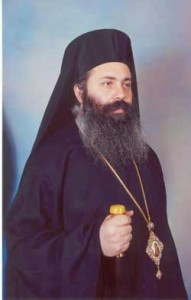I don't write here as much as I used to, but those who follow this blog know that I have written an unfortunate number of such posts over the last couple of years. I have addressed varying forms of bigotry, hatred and sectarianism here, here, here and here. That's just since 2017. I'm frankly weary of it, yet it appears this sort of attitude toward one another is all too prevalent, and so I speak.
The shooter, who had something of an obsession with the history of the rise of Islam, so much so that he visited historic sites of battles between Christians and Muslims, does not seem to be any sort of practicing Christian, but he does place great value on the perceived decline of Christianity, presumably mostly as a white ethnic identity instead of as a faith and life God gives us to live. This is at once heartening and terrifying. Heartening because he did not know Christ and therefore his actions do not speak to the Christian faith at all. Terrifying because he was apparently willing to nonetheless commit unspeakable acts in protest of his perceived loss of Christian (that is, white) identity in the world.
The horror present in this atrocity is appallingly simple. The shooter, in doing what he did, became precisely that which he claimed to despise. He did so because he reduced people to the most superficial attributes -- mostly racial -- while simultaneously failing to give any nuance to the most complex attributes, their religious faith. To the shooter, Christian = European = white. Muslim = non-European = non-white. I'm sure there are other, equally superficial, distinctions he made, but I honestly lack interest in trying to find them. It is enough to say he had a very reductionist view of humanity.
Of course, anyone with even a cursory knowledge of Christian history knows that this view is not simply false, it is laughably false. Middle Eastern Muslims are of similar racial stock to our Lord Himself, and His mother, our Lady the Theotokos. And before Christianity was much of a thing in Europe, it spread first in the Middle East and North Africa. The early patriarchates were located in Rome, yes, but also Alexandria, Antioch (in modern-day Turkey, though the Patriarchate is now located in Damascus), Jerusalem and Constantinople. The main theological disputations in the earliest centuries were between the schools of Antioch and Alexandria. Christianity is, first and foremost, an Eastern religion. European Christianity comes to the game somewhat later in time -- even Rome was more culturally Eastern than what most people imagine "European" (that is, mostly medieval Roman Catholic) Christianity to be.
This misunderstanding goes beyond the Christian faith, but to Christian and Muslim persons. Our bishop, who is visiting us this week, was born in Damascus, and has a still-thick accent even though he has lived here since 1981. Those who overvalue the superficial might mistake him for a Muslim. My brother has spent quite a lot of time in Indonesia. I suppose one can make distinctions between Middle Eastern Muslims and Asian Muslims, but isn't that sort of the point? Besides, Indonesia is the single largest Muslim nation in the world. My brother encountered no difficulty there. On more than one occasion, the kindness of local Muslims -- because of their faith, not in spite of it -- was very comforting to him.
 |
| Metropolitan Paul of Aleppo |
I am also aware, as I noted in my last post, that the Orthodox Church has those within it (and others who wish to be within it but are not allowed) who espouse such superficial distinctions between humans. The simple point I would like to make is this -- those who commit such atrocities, like those who would try to use the Orthodox Church as justification for their racism and hatred, do not do so because of their faith, but in spite of it. There will be many true Scotsmen eager to point out, rightly, that the Christchurch shooter does not represent Christianity. I hope they will seek out a mirror, and realize that this is also true of the 9/11 terrorists and those who kidnapped our beloved Metropolitan. They do not represent Islam.
As I noted a while back in 2 separate posts, we have a choice. We can choose to see others, even those of different faiths, as brothers and special creations of the Father, or we can choose to see them as evil, as (ironically) infidels, as irredeemable. The former path is the Christian path. Christianity is an exclusive faith, in that we truly believe Christ is the only way to reunification with God. But Christianity does not value superficial distinctions. Racism is sin. Xenophobia is sin. Which is only to say, false witness is sin. A person is no more or less a Christian because of the color of their skin or their national origin. A person is no more or less representative of Islam based on the same superficialities. We are not universalists. We do believe some will be damned, but we do not get to choose who. It is not ours to judge.
Bishop Nicholas told us yesterday evening that there are 613 total commandments in the Old Testament, and that our Lord summed them all up in two -- love the Lord your God with all your heart, mind and soul, and love your neighbor as yourself. We have a choice. Choose to love your neighbor as yourself. And pray for those who lost loved ones, and those loved ones lost, when someone who felt very strongly about the loss of Christian identity missed the entire point of the Christian faith. Lord have mercy.

No comments:
Post a Comment